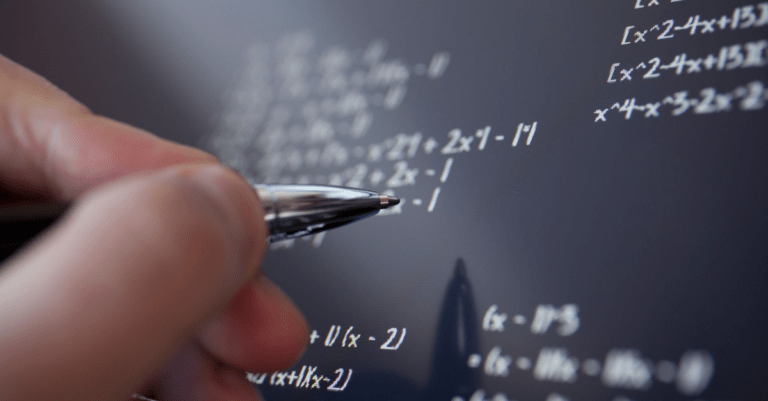Let’s start by establishing that both of these words are short for “mathematics,” the science of numbers and their operations. The word comes from the ancient Greek “mathimatikós.” Its root means “to learn.”
As an aside, if you’ve ever wondered why someone who seems to know everything is called a “polymath,” it’s because the “math” part of “polymath” comes from the same root, so a polymath is simply someone who has learned a lot. It doesn’t have anything to do with mathematics.
In the US, ‘mathematics’ was first shortened to ‘math’ in the mid-1800s.
In the US, “mathematics” was first shortened to “math” in the mid-1800s. The Journal of the American Education Society from 1829, for example, lists “Math., Rhet., and Hist.,”—short for mathematics, rhetoric, and history—as sophomore classes.
In 1899, Jack London wrote a letter describing his soon-to-be-wife, Bess Maddern, as “well up in the higher math … but not in general culture.” His attitude may hint at why their marriage lasted five short years and ended in a contentious divorce.
In the UK, citations from 1911 onward show ‘maths’ being used as the standard term.
In the UK, around the same time, a different abbreviation was taking hold. Citations from 1911 onward show “maths” being used as the standard term in magazines, letters, and books. And that’s the term that’s still used there today.
If you ask someone why they say “maths” instead of “math,” they’ll probably give what seems like a logical answer. It’s because the word “mathematics” is plural. See the S on the end?
‘Mathematics’ is singular.
The problem is “mathematics” isn’t plural. It’s singular. It describes a thing—a field of study—not many things. The S on the end doesn’t indicate plurality; rather, it means something totally different. It functions as a “noun marker,” turning the adjective “mathematic” into the noun “mathematics.”
The letter S does the same thing when it turns the adjective “acoustic” into “acoustics,” “pediatric” into “pediatrics,” and “politic” into “politics.”
This use of the letter S isn’t very common in English, so it’s no surprise that people took the S in “mathematics” as a marker that the word was plural.
So … is the use of “maths” wrong? Yes and no. On the one hand, you could argue that since it developed from an incorrect interpretation of linguistics, it should be banished. On the other hand … that’s not gonna happen. The word has been increasing in use since 1920 and shows no sign of stopping. That’s simply what people say in the UK and in other countries influenced by the UK. And as long as people around the world keep watching the “Great British Baking Show,” “Doctor Who,” and “EastEnders,” it’s probably going to spread.
Image courtesy of Shutterstock.
Samantha Enslen runs Dragonfly Editorial. You can find her at dragonflyeditorial.com or @DragonflyEdit.




